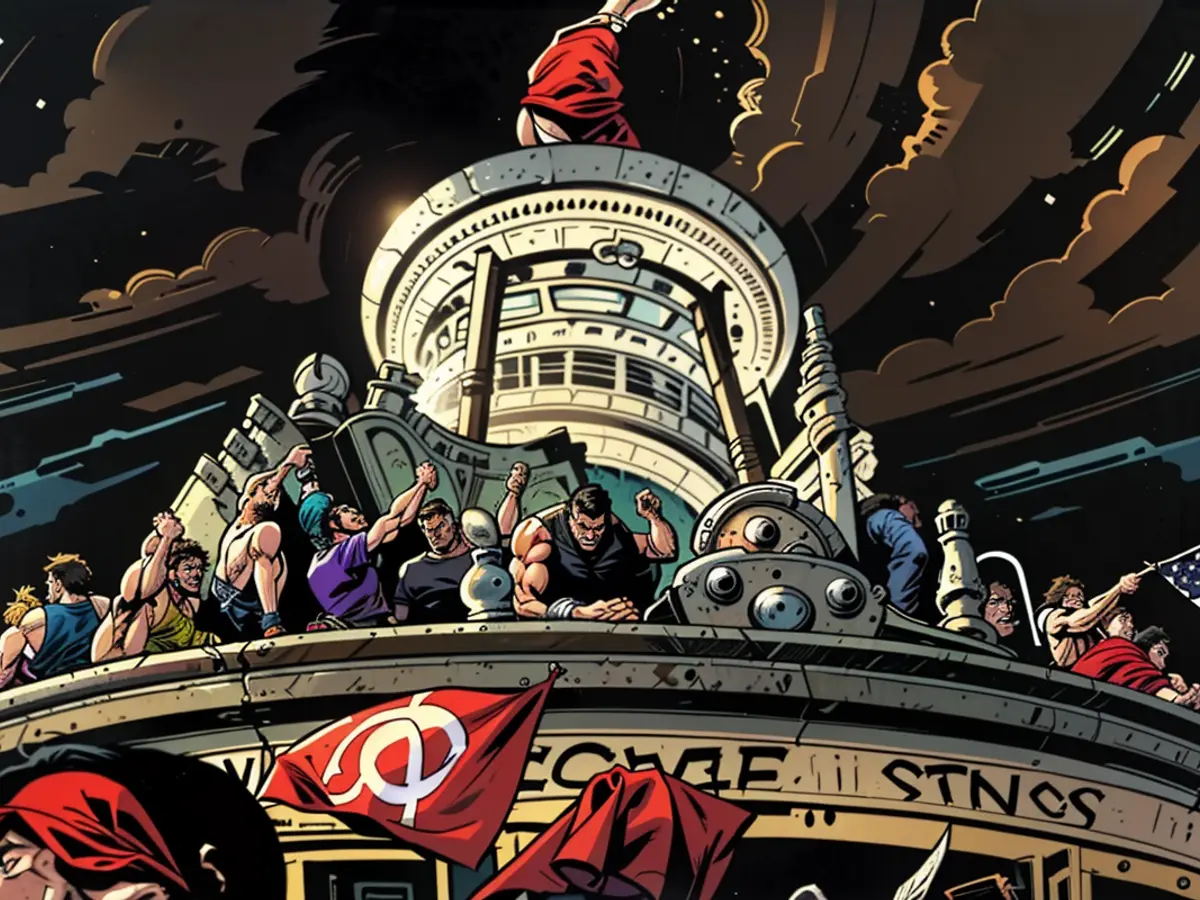Start of negotiations after parliamentary elections in France
Simultaneously, Attal signaled his readiness to stay in office until the formation of a new government, given that in Paris in three weeks, the Olympic Games are set to begin.
In the first round of the parliamentary election a week ago, the right-wing Rassemblement National (RN) led, and it was predicted that the party, under Marine Le Pen, would triumph in the second round as well. Instead, however, the left-wing New People's Front was projected to be the strongest force. The RN ended up in third place behind President Macron's government coalition.
It's unclear who will be the new prime minister. The left-wing New People's Front has yet to agree on a common candidate. France is facing a period of great political instability: The three major blocs in the National Assembly could block each other, paralyze the government, and plunge the country into a political crisis. The New People's Front is hostile to the Macron camp, and internally divided.
The former leader of the left-populist party La France Insoumise (LFI), Jean-Luc Mélenchon, made a claim for government formation on behalf of his alliance on election night. LFI is the largest group within the alliance, but Mélenchon is unwelcome among the other participating parties.
Left-populists, Socialists, Communists, and Greens had surprisingly forged an alliance before the first round of parliamentary elections, despite many differences. They couldn't agree on a common candidate for the position of prime minister.
"Is this the greatest crisis of the Fifth Republic?", commented Gael Sliman from the polling institute Odoxa. President Macron had hoped for clarity through the elections he had called; "now we find ourselves in total uncertainty - in a very thick fog". Macron had called for the early parliamentary elections after the poor performance of his government coalition and the success of the RN in the European elections.
According to the projections, the New People's Front will have between 177 and 198 deputies and will fall significantly short of the absolute majority of 289 seats. LFI deputy Clementine Autain called on the parliamentarians of the alliance to meet on Monday to determine a prime minister.
The second largest group in the future parliament will be the former government coalition with 152 to 169 seats. The Rassemblement National gained between 135 and 145 seats, the most they have ever won.
Le Pen, the RN's faction leader, emphasized that their victory was "only postponed." RN leading candidate Jordan Bardella criticized the New People's Front and the government coalition as a "shameful alliance" that had deprived the French people of a "policy of progress." The RN was "the only alternative."
Many candidates from the left alliance and the government coalition gave up their second-round bids to prevent a right-wing advance.
Thousands of people celebrated in the center of Paris relieved that the right-wing populists had lost. On the Place de la République, cheers rang out as the first projections were released shortly after the polls closed.
- Gabriel Attal, despite the upcoming Olympics in Paris in three weeks, indicated his willingness to continue serving as a caretaker until a new government is formed.
- The right-wing Rassemblement National (RN), led by Marine Le Pen, had a strong showing in the initial round of the parliamentary election, leading many to predict their victory in the second round.
- Regardless of who becomes the new prime minister, France is bracing for a period of political instability, with the three major blocs in the National Assembly likely to obstruct each other, potentially leading to a crisis.
- Jean-Luc Mélenchon, previously of the left-populist party La France Insoumise (LFI), attempted to form a government on behalf of their alliance following the election, but was met with resistance from other participating parties.
- Despite their shared left-populist beliefs, the New People's Front was unable to agree on a single candidate to serve as prime minister, leading to uncertainty and potential gridlock in the upcoming parliamentary election.
- Emmanuel Macron had called for the early parliamentary elections in an effort to regain control, but the results have left him in a state of uncertainty, as the right-wing RN and the left-wing New People's Front both gained significant support.
- According to the projections, the Rassemblement National, while falling short of an absolute majority, still made significant gains in the parliamentary election, securing between 135 and 145 seats.
- Negotiations between the major parties are expected to take place in the coming days, with Emmanuel Macron, Jean-Luc Mélenchon, and Marine Le Pen all likely to play significant roles in shaping the next government of France.







